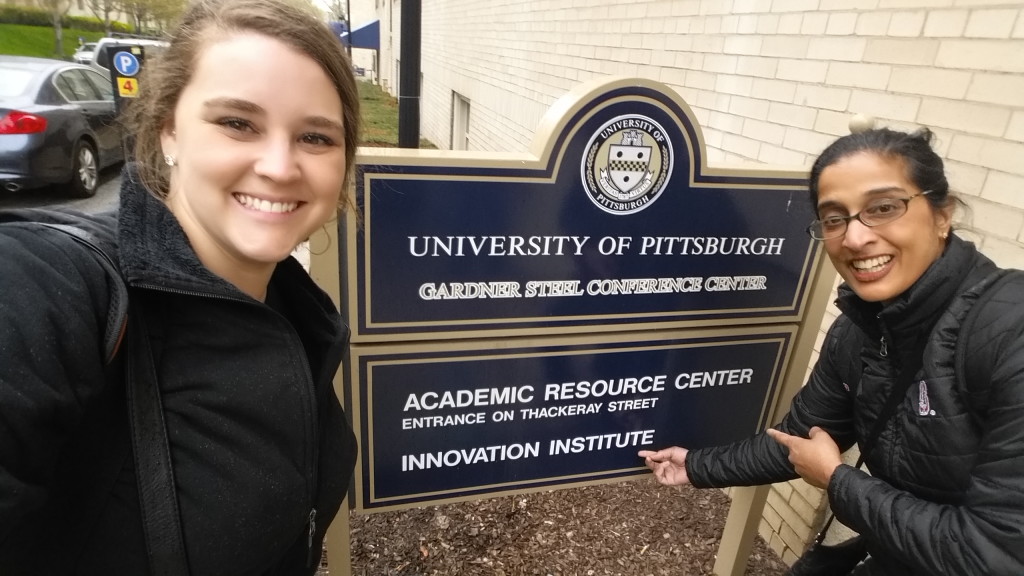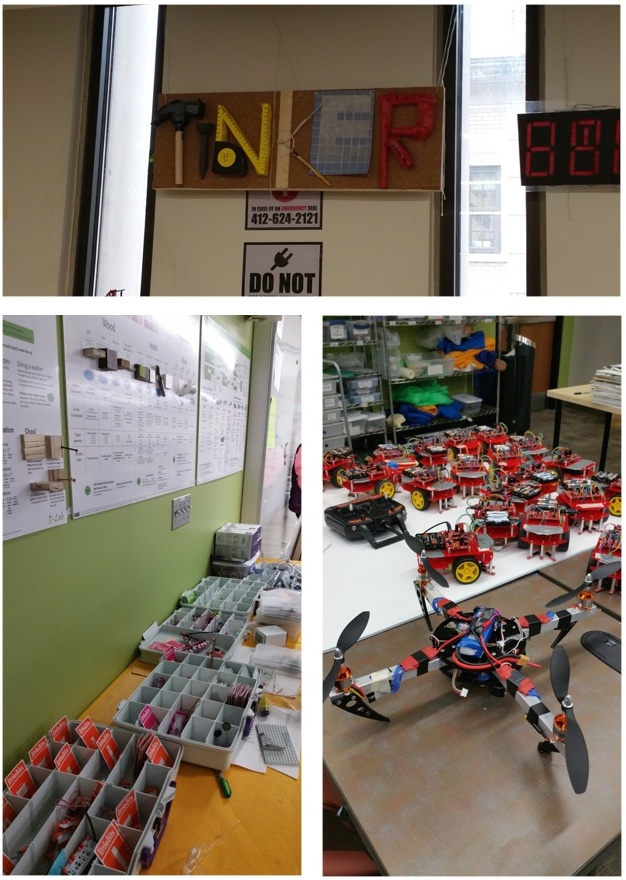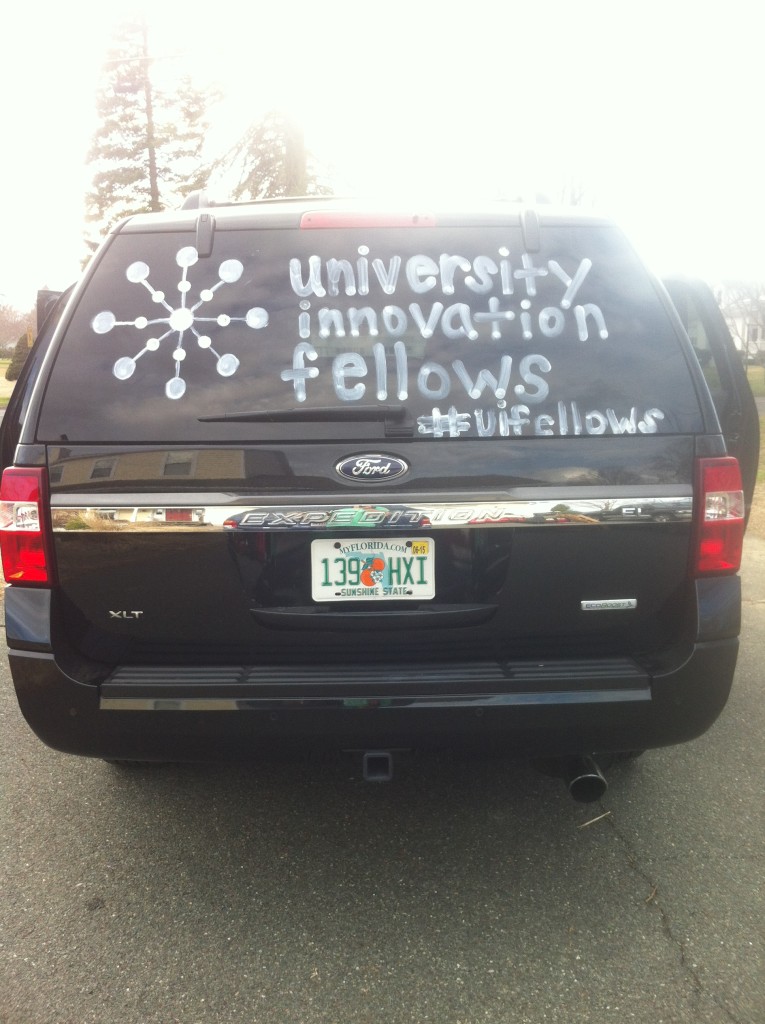The Art of Making
by Katie Dzugan
It was a cloudy, rainy day during finals week in April 2015 when we arrived in Pittsburgh, Pennsylvania, to visit 6 Fellows at the University of Pittsburgh (UPitt). UPitt is a sprawling, urban campus with beautiful stone buildings that spans 132 acres of city blocks. Campus was abuzz with students walking from building to building and occupying all the study spaces.
We met Fellows Nate Smialek, Brian Rhindress, Ian McIntyre, Madhur Malhotra, Jenny Sommer and David Jacob at the Innovation Institute, along with supporter Babs Carryer, Director of Education and Outreach. The Innovation Institute was recently launched through the Office of the Provost in 2013 to bring together major areas of innovation on campus: the Office of Technology Management, Office of Enterprise Development and the Institute for Entrepreneurial Excellence. This recent structure was put in place to build a culture of innovation and entrepreneurship at UPitt, which fits with the mission of the Fellows and their faculty sponsor, Mary Besterfield-Sacre, and provides a neutral zone across campus to foster a hotbed of activity in regards to innovation and entrepreneurship (I&E).
In the main conference room, outfitted with whiteboards and smart TVs, we were able to learn about the recent projects the Fellows had undertaken. The first project was the Pitt Design Hub. The Design Hub is a student organization originally named Engineers for Sustainable Medical Devices (ESMD) that was created by Fellow (now UPitt alumna) Karuna Relwani. ESMD’s mission was to provide biomedical engineering students with hands-on experience working with physicians to design medical devices that physicians would actually use, from surgical mounts to brain stimulation. As the student organization grew, and more Fellows joined the crew at UPitt during the last year, ESMD has rebranded and grown into the Design Hub. The Design Hub has the same mission to still connect students to real-world projects and local physicians, but the student organization wanted to be more inclusive of other majors outside of biomedical engineering to reach all engineers and other majors, such as business.
Karuna Relwani presents at Open 2014
The second project we learned about was the freshman-level course the Fellows were involved with, “The Art of Making: Hands-on System Design and Engineering.”
“In this class, our goal was to teach concepts like ideation, rapid prototyping and design thinking along with promoting the maker culture,” said Madhur Malhotra, University Innovation Fellow. “Throughout the class, we introduced technologies like Arduino, LittleBits, Solidworks and so on. The final project involved combining such technologies and developing a cool and useful solution with them.”
During the semester, the students participating in the class turned the classroom into a mini makerspace with hardware, tool kits, low-resolution prototyping materials and more. Building this space and experiencing the class allowed the freshmen to be actively involved with learning the curriculum. In the final 3 weeks of the class, the students focused on a specific project of their choosing. These projects stemmed from interactive periodic tables to a pineapple that controlled the playing of a violin. The student projects were showcased on the outer wall of the classroom in the hallway by a projector displaying rotating images.
After catching up, we were able to get a tour of the engineering building, which is where the freshman class “Art of Making” is held (see photos of the classroom above), and where meetings for the Design Hub occur. We saw everything the students did and didn’t have access too, ranging from study spaces to classrooms and hallways to music studios. Interestingly, the hallways were a massive space for students to sprawl out and collaborate on projects or just to work and study, being at least 15 feet wide with whiteboard walls. Our visit was jam-packed with information and tours of campus and we were extremely excited that the Fellows made time for us during the busiest time of the semester.
After experiencing different adventures over the summer, the Fellows came back together to continue innovating the Pitt campus this fall. Updates since the summer include (provided by Madhur Malhotra):
- Adding a unit to the “Art of Making” course focused on media and how to communicate a design/product effectively through visual media.
- The Fall 2015 course was developed for upperclassman to spread the maker culture across other classes within UPitt’s engineering department.
- 7 final projects from the “Art of Making” were presented at the bi-annual Design Expo.
P.S. This post was written during the UIF Roadtrip 2015.






